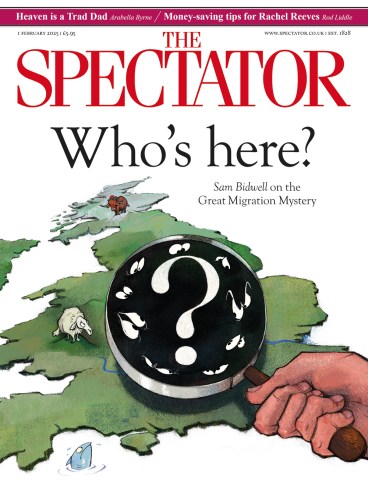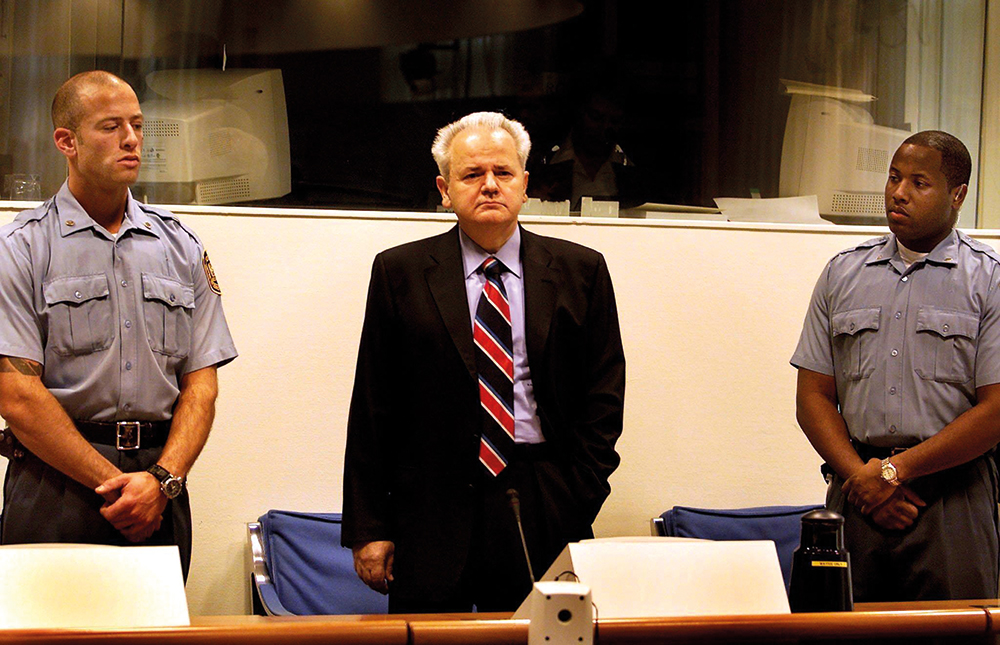
Philippe Sands has narrated this article for you to listen to.
Three generations ago, Britain and the United States joined forces to propose the establishment of a revamped international rules-based system to remake the world. This was initially articulated in a document that came to be known as the Atlantic Charter, signed in August 1941. Other countries, including the Soviet Union, were persuaded to join the effort, part of a grouping that came to be known as the United Nations.
The new rules would address trade and other economic matters, decolonisation, war and the fundamental rights of human beings. In the summer of 1945, the Statute of the Nuremberg Tribunal was drafted, reflecting agreement on a list of international crimes and the notion of individual criminal liability, up to the very highest levels of public office.
Today, crimes are being perpetrated on a vast scale, and the very notion of accountability can prompt despair
The first leaders to be held to account for the quartet of international crimes were Nazis, later convicted of war crimes, crimes against humanity, and aggression (it is forgotten that they were let off the newly invented crime of genocide, largely because the Americans feared it might be applied to them in relation to their treatment of blacks and Native Americans). From the outset, accountability was a lopsided affair.
What came next is the subject of Steve Crawshaw’s character-driven account, paying homage to those engaged in the modern system of international criminal justice. An advocate of global efforts to prosecute the most powerful, the author adopts a mainly chronological approach, from Nuremberg and the 1948 Convention outlawing genocide to five wilderness decades. These were marked by the failure to create a permanent international criminal court and establish the basis for universal jurisdiction, allowing courts of any country to exercise jurisdiction over perpetrators of the most serious international crimes.
The big change came in the 1990s, a heady period catalysed by the horrors committed in former Yugoslavia and in Rwanda and the dissolution of the Soviet Union. This allowed the UN Security Council to create two international criminal tribunals and galvanise efforts at the UN International Law Commission to establish a permanent international criminal court.
The year 1998 was seminal, when ‘prospects for justice… multiplied in many different ways’. In July, states signed the ICC Statute in Rome. Shortly after, Slobodan Milosevic was secretly indicted in The Hague, the first ever serving head of state to be charged with international crimes. (Milosevic once assured Crawshaw personally that criminal conduct by any Serb ‘will be the subject of a criminal prosecution’.) In October, Augusto Pinochet was arrested in London, charged by a Spanish judge with genocide and torture. It was an early example of universal jurisdiction. The Chilean was a former head of state whose friends, led by Margaret Thatcher and Henry Kissinger, could not prevent his 503 days’ incarceration in a private house in Virginian Water, with limitless supplies of dulce de lecce and Star Wars movies, but did help him to avoid a one-way ticket to Madrid.
Over the next decade the practice of international criminal tribunals proliferated, as did cases before national courts and mixed international and national courts. By 2010, the UN secretary general Ban Ki-Moon was telling ICC members that ‘the old era of impunity is over’ and ‘a new age of accountability’ had arrived, in which those who had committed ‘the worst of human crimes will be held responsible’.
Fifteen years on, those words seem quaint. Today, crimes are being perpetrated on a vast scale – think Sudan, Ukraine, Israel and Palestine for starters – and the very notion of a rules-based system and individual accountability is liable to prompt despair. John Bew, the academic and foreign policy expert with personal knowledge of recent Conservative foreign policy achievements from his time at No. 10, believes that we have now moved on from ‘the rule-of-law era’ to the age of ‘raw power’.
The observation will have its adherents, particularly in the Conservative party, which seems to have abandoned its commitment to the values of 1945 that led Winston Churchill and David Maxwell Fyfe to push for the rule of international law. Yet the reality is that the challenges our world faces suggest otherwise. Most of the rules-based system works pretty well, with broad acceptance of the treaties that allow us to consume, communicate, travel and engage in a myriad of activities.
Such successes we never read about. The focus is on the rules intended to halt human slaughter or territorial occupations by military force, along with those that promote criminal liability, to which Crawshaw is admirably attached. Yet even these rules have some writ when applied to powerless, friendless or vanquished men. (Madam War Criminal, Olivera Simic’s remarkable book, soon to be published, on Serbia’s Biljana Plavsic, the only female political leader ever to be prosecuted for a mass atrocity crime before an international criminal tribunal, offers an example of a rare exception to the gender rule.)
The current challenge to the system concerns those who remain in office or have powerful allies. Lopsidedness rules, as is illustrated by two recent cases. In March 2023, an arrest warrant was issued in the name of Vladimir Putin for the crime against humanity of forcibly deporting children. Russia is not a party to the Statute of the ICC, yet the US Senate welcomed the ruling without dissent, supported by Joe Biden and Rishi Sunak. Fast forward 18 months and an arrest warrant was sought for the leader of another country that is not a party to the ICC Statute. When Benjamin Netanyahu, Prime Minister of Israel, was charged with crimes against humanity and war crimes perpetrated in Gaza, Biden and Sunak changed their tone: ‘deeply unhelpful’ and ‘outrageous’, they complained.
The difference between the two cases? In one, the alleged perpetrator is not our friend; in the other he is. ‘Target Israel and we will target you,’ warned Senators McConnell, Rubio and Cruz, despite supporting ICC investigations of Russia and Putin. This blatant double standard, a characterisation of so many countries, is premised on international law and accountability being only for others.
This is the tale told by Crawshaw. He speaks with direct knowledge of many of the cases he describes, having served for years as UK director of Human Rights Watch and lived through the ‘Faustian struggle between despair and hope’ at the heart of his engaging narrative. One could quibble with some points of detail: the International Law Commission and James Crawford deserve credit for laying the groundwork for an ICC, as does Carlos Castresana (rather than Baltasar Garzon) for initiating the proceedings that ensnared Pinochet. But this a compelling account of a revolutionary moment in history – the hunting of the sovereign. Some details are personally painful. I was not aware that the Ukrainian novelist Viktoria Amelina was prompted to document Russian human rights violations after she saw a plaque marking the Lviv home of Raphael Lemkin (the coiner of the word ‘genocide’), erected following the publication of my book East West Street.
Crawshaw’s halcyon period no doubt reflects a ‘distant memory of a now vanished era of hope’. To be sure, a struggle is under way to save the 1945 moment of rights and responsibilities, but justice is a long game. As a young academic in the 1980s, I was occasionally invited to lunch by Sir John Baker, professor of English Legal History. A man of unquenchable curiosity and knowledge, he liked to enquire about whatever obscure international law issue I might be engaged on. ‘Ah yes,’ he’d respond, ‘we had a similar problem in English law in the late 15th century and it took 250 years to sort that out.’
So it is with international criminal justice. There are imperfections and inadequacies, and the system undoubtedly favours the powerful, but it was ever so in its own backyard. The law is a blunt instrument, one that reaches some places but not others; yet I like to think that the architects of the 1945 moment got it right. A couple of steps forward, one back, one sideways, then forward again. This will be of no comfort to those on the receiving end of today’s horrors in our pick-and-choose approach to justice; but I share Crawshaw’s ‘reasons for hope’ to address not only the crimes of our past but also those of our future.







Comments